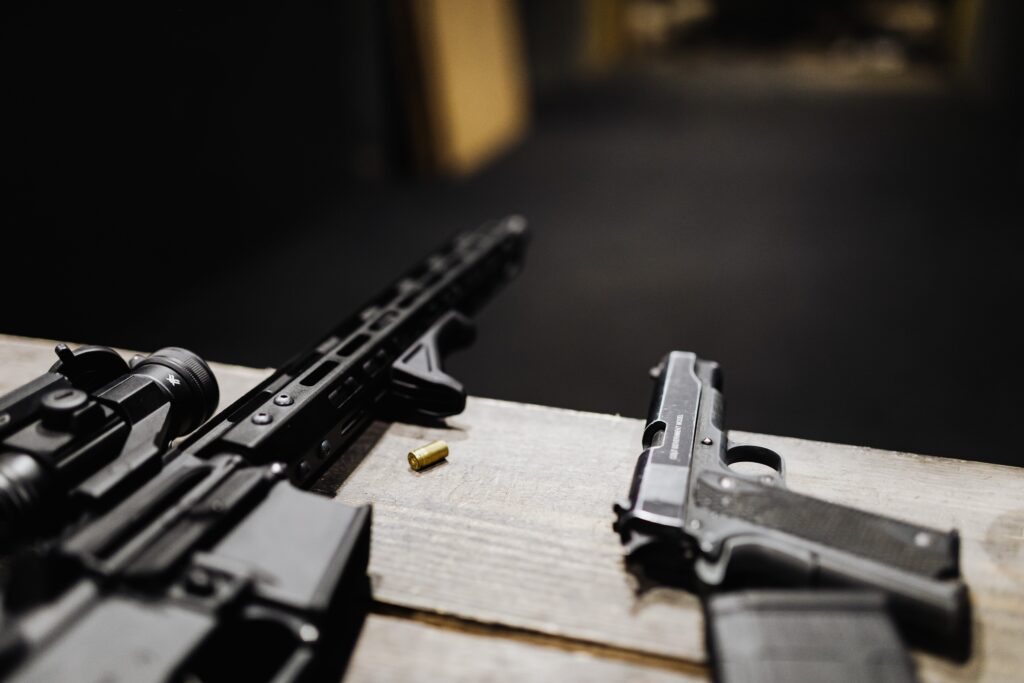AG Kris Kobach goes after 'unconstitutional' ATF rule

Kansas Attorney General Kris Kobach is leading a coalition demanding President Biden’s Bureau of Alcohol, Tobacco, and Firearms drops a proposed rule considered a “violation of the Second Amendment.” The coalition is made up of 25 other state attorneys general as well as the Arizona State Legislature.
“The proposed regulation clearly violates the Second Amendment. For as long as this country has existed, individual law-abiding Americans have sold firearms to friends and family. Doing so would become extremely difficult if this regulation were to take effect. My colleagues and I will do everything necessary to stop this from happening,” Kobach said.
Kobach sent a 9-page public comment letter on Thursday, December 7, to the ATF in regards to the recently proposed rulemaking that would update the definition of ‘Engaged in the Business’ as a firearms dealer.
Under the proposed rule from September 8, 2023, the definition of ‘Engaged in the Business’ as a firearms dealer would be changed in the Gun Control Act (GCA) of 1968 by implementing the provision of the Bipartisan Safer Communities Act (BSCA).
Under current statute, the term “engaged in the business” means “a person who devotes time, attention, and labor to dealing in firearms as a regular course of trade or business to predominantly earn a profit through the repetitive purchase and resale of firearms.” However, under this new provision the definition of ‘Engaged in the Business’ as a firearms dealer would be broadened to include all individuals who “predominantly earn a profit” from wholesale or retail dealing in firearms by eliminating the person’s “principal objective” of purchasing and reselling firearms to include both livelihood and profit.
There were many concerns about this proposed rule change that Kobach demonstrates in his public comment letter. One issue was the unclear definition of “profit.”
Kobach wrote in the letter:
“The proposed rule expands the definition of earning a profit to be determined by something other than money to include (1) personal property that includes another firearm or ammunition, (2) a service, (3) another medium of exchange, or (4) valuable consideration. In addition, there is no requirement that a firearm actually be sold (only an offer to engage in a transaction) nor is there any requirement that a person selling a firearm make a pecuniary gain.”
Another concern was that the change would presume individual sellers are firearms dealers even if the individual only sells one firearm. This is really important because of what it takes to become a licensed firearm dealer. Currently set by the GCA, firearms dealers have to pay a $200 fee for the first three-year period and a $90 fee for a three-year renewal period. There’s also a whole application process that includes being fingerprinted and photographed. However, not only would individuals be subjected to this, but, as a “firearms dealer” they would be required to conduct background checks through the FBI’s National Instant Criminal Background Check System (“NICS”) and they would have to maintain firearms transaction records for “crime gun tracing purposes.” A person who fails to get licensed could face up to five years imprisonment and a fine up to $250,000.
Kobach, however, argued in his letter that the right to sell firearms for profit among individuals is protected by the Second Amendment, stating:
“…the sale of firearms among individuals for profit is protected by the Second Amendment. The plain text of the Second Amendment protects the rights of the people to “keep and bear” arms. “[T]he core Second Amendment right to keep and bear arms for self-defense wouldn’t mean much without the ability to acquire arms.” To this end, as many courts have held, the ability to buy a firearm is encompassed in the right to keep a firearm. Likewise, the ability to sell a firearm to another is also protected.”
The letter concludes that the Bureau should withdraw the proposed rule, with Kobach’s comment letter taking shots at the Bureau’s seriousness about combatting violent crime.
“If the Bureau was serious about combatting violent crime, it would focus on enforcing the laws that are already on the books to hold violent criminals accountable for their actions,” the comment letter reads. “That would be the type of work that could save lives. Unfortunately, the Bureau has instead targeted innocent people who sell firearms. That is not only unlawful but wrong and the Bureau must change course.”
In addition to the Arizona State Legislature and Attorney General Kobach, the attorneys general of the following states also signed the letter: Iowa, Montana, Alabama, Alaska, Arkansas, Georgia, Idaho, Kentucky, Louisiana, Missouri, Mississippi, Nebraska, New Hampshire, North Dakota, Ohio, Oklahoma, South Carolina, South Dakota, Tennessee, Texas, Utah, Virginia, West Virginia, and Wyoming.
Thanks for reading. Be sure to share and subscribe. You can also help support independent journalism in Kansas by buying me a coffee at buymeacoffee.com/kscon.

Ian Brannan
Ian Brannan is an independent journalist who founded The Kansas Constitutional in April 2022. His work focuses on issues including abortion, Convention of States, drug policy, education, government, LGBT issues, media, and more. He is also the co-host of the Remember COVID podcast.

